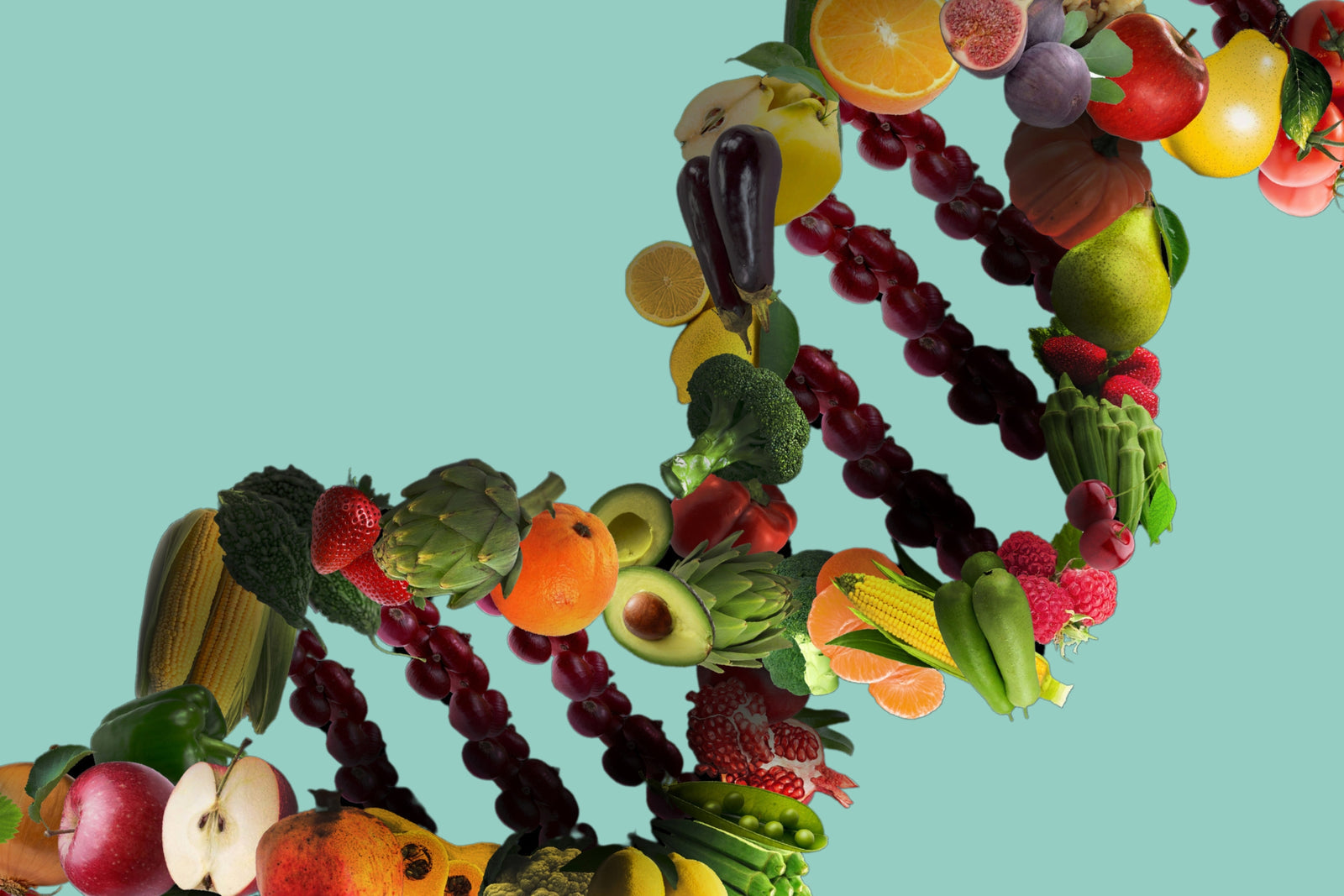Coenzyme Q10, NQO1, and What Your Genes Mean for Cellular Energy
Coenzyme Q10 (CoQ10) is a nutrient your cells use to make energy and protect themselves from oxidative damage. It exists as ubiquinone (inactive) and ubiquinol (active). The NQO1 gene makes an enzyme that converts ubiquinone into ubiquinol. Variations in NQO1 can change how well this conversion works and influence the amount of active CoQ10 available in cells.
Why this matters
- Ubiquinol is the antioxidant form of CoQ10 and is the form cells use directly for mitochondrial energy and protection.
- If your NQO1 enzyme is less efficient, you may have lower levels of ubiquinol even if overall CoQ10 intake is adequate.
- Diet, lifestyle, and targeted supplementation can help support CoQ10 status and cellular health.
Practical areas to consider
- Diet: Eat CoQ10-rich foods such as organ meats, fatty fish, whole grains, nuts, seeds, and green vegetables like spinach and broccoli.
- Supplements: Ubiquinol is the active form and may be more effective for people with reduced NQO1 activity; ubiquinone supplements may require conversion by NQO1 to become active.
- Lifestyle: Regular exercise, good sleep, stress management, and avoiding smoking support mitochondrial function and antioxidant capacity.
- Blood testing and monitoring: If relevant to your care plan, measures such as fasting lipids, basic metabolic panel, and specialist testing of oxidative stress or CoQ10 levels can be discussed with your healthcare provider.
Two effect alleles (AA) — severely reduced NQO1 function
If your genotype is AA at rs1800566, you carry two copies of the effect allele. This variant is associated with severely reduced NQO1 enzyme activity and a markedly decreased ability to convert ubiquinone into ubiquinol. The practical effects may include lower levels of active CoQ10 available for energy production and antioxidant protection.
Diet
- Prioritize CoQ10-rich foods: organ meats (liver, heart), fatty fish (salmon, mackerel), whole grains, nuts (peanuts, pistachios), and vegetables (spinach, broccoli).
- Include healthy fats (olive oil, avocados) to support fat-soluble nutrient absorption.
Supplements
- Discuss ubiquinol supplements with your healthcare provider. Ubiquinol is already in the active form and bypasses the conversion step that your NQO1 enzyme struggles with.
- Dosage varies by individual health needs. Start with a clinician-recommended dose and monitor for benefit and tolerance.
Lifestyle and monitoring
- Regular moderate exercise to support mitochondrial health.
- Sleep and stress reduction to minimize oxidative burden.
- Consider discussing CoQ10 blood testing or targeted metabolic testing with your provider if you have symptoms of low energy or are on medications that affect CoQ10 (for example certain cholesterol-lowering drugs).
One effect allele (GA) — moderately reduced NQO1 function
If your genotype is GA at rs1800566, you carry one copy of the effect allele. Your NQO1 enzyme retains moderate ability to convert ubiquinone into ubiquinol, but conversion is not as efficient as in people with two typical copies. You can still make active CoQ10, though support through diet and lifestyle may be helpful.
Diet
- Include CoQ10-rich foods regularly: organ meats, fatty fish, whole grains, nuts, spinach, and broccoli.
- Balance meals with healthy fats to improve nutrient uptake.
Supplements
- Ubiquinol supplementation may be beneficial, especially if you have symptoms suggestive of low energy or oxidative stress, or if you take medications that lower CoQ10.
- If choosing ubiquinone supplements, be aware conversion is possible but may be slower; discuss dosing with your healthcare provider.
Lifestyle and monitoring
- Maintain consistent exercise and sleep routines to support mitochondrial efficiency.
- Stress management techniques like mindfulness, breathing exercises, or yoga can reduce oxidative demand.
- Talk with your clinician about monitoring if you have health concerns that could be related to energy or oxidative stress.
No effect alleles (GG) — typical NQO1 function
If your genotype is GG at rs1800566, you carry two copies of the non-effect allele. Your NQO1 enzyme functions efficiently and can convert ubiquinone into ubiquinol effectively. This supports normal cellular energy production and antioxidant defenses provided other factors are in balance.
Diet
- Continue including CoQ10-rich foods: organ meats, fatty fish, whole grains, nuts, spinach, and broccoli.
- Maintain a balanced intake of healthy fats to support absorption.
Supplements
- Both ubiquinone and ubiquinol supplements are likely to be well utilized, given normal conversion capability.
- Consider supplementation if you have specific reasons (age-related decline, certain medications, or clinical symptoms) and review with your healthcare provider.
Lifestyle and monitoring
- Healthy lifestyle behaviors—regular exercise, adequate sleep, stress reduction, and not smoking—help maintain mitochondrial and antioxidant function.
- Routine clinical care and check-ins with your provider will help determine if any additional testing or interventions are appropriate.
Other practical recommendations and considerations
- If you take statins or other medications known to affect CoQ10, mention your genotype to your provider; they may suggest monitoring or supplementation as part of your medication plan.
- Consider taking supplements with meals containing fat for better absorption.
- Older adults and people with certain chronic conditions sometimes have lower CoQ10 status and may benefit from evaluation.
- Start any supplement only after discussing it with your healthcare provider, especially if you are pregnant, breastfeeding, taking medications, or have a chronic health condition.
Testing and follow-up
- Genetic results indicate predisposition, not diagnosis. They describe how your NQO1 enzyme may function relative to others.
- If symptoms of low energy, muscle pain, or other concerns are present, discuss targeted testing and management plans with your clinician.
- Your healthcare provider can help interpret genetic findings in the context of your overall health and decide whether blood tests or supplement trials are appropriate.
PlexusDx does not provide medical advice. This information is educational and intended to help you understand how genetic variation in NQO1 can affect CoQ10 metabolism. Always consult your healthcare provider before making changes to your diet, starting supplements, or altering your medical care.

Share:
Iron | HFE (rs1800730)
Lipid Metabolism | LIPC (rs1800588)